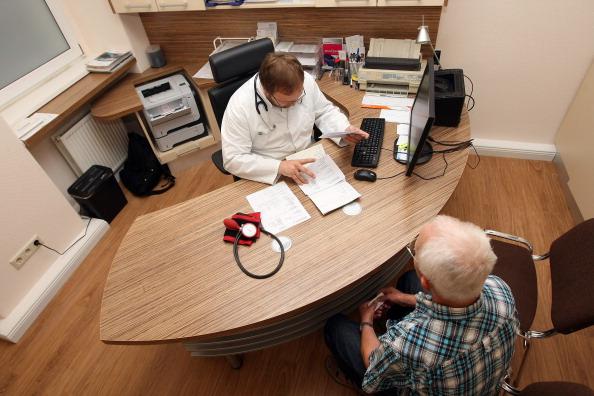How Much Do Sperm Donors Make? Can Vary by Clinic
It's a pretty common fact that sperm donors are able to make a profit from their contributions. So, how much do sperm donors actually make?
March 10 2023, Published 2:08 p.m. ET
There have been many forms of donations that allow us to give back while cashing out. Some second-hand stores offer tax benefits, while other donation organizations may offer other forms of incentives. Those who donate blood, plasma, uterine eggs, or sperm may be able to cash out for their contributions. Some women even take on the role of a surrogate.
Sperm donors are able to make a profit from their contributions, and considering how socially taboo discussing sperm donation publicly may be in some cultures, the details are usually scant before a little research is done. Here's how much sperm donors make, how often they can donate, and more about the process.
How much do sperm donors make?

When breaking down how much sperm donors make, it really comes down to how much the sperm bank is willing to pay per sample collection. A base rate of pay for sperm donors comfortably rests at $100, though the $100 is a starting point for how much donors can earn. Some locations will pay out upward of $150 per donor visit.
Depending on the location, some donors may only be paid when their sample is accepted by the clinic. Others are paid a portion of the total sum upfront upon the bank's receipt of the sample and then get the rest of the payment after the sample is approved. Whether the total compensation is paid altogether is determined on a clinic-by-clinic basis.
How often can you donate sperm?

If you're looking to donate sperm to a local sperm bank, or multiple sperm banks, you may be wondering how many times you're able to submit samples to your facility of choice. When it comes down to it, you're able to donate once or twice a week, with the possibility of being able to donate more if you're viewed as a suitable candidate. Sperm banks accept donations based on the quality of samples and screen donors prior to approval.
On a monthly basis, a donor can contribute their samples to sperm banks at a total of 10–15 times. While that may appear to be a high number, some clinics allow participants to maximize their contributions with a catch. Most institutions request that those participating in the sperm donation process remain abstinent two to three days prior to their donation date.
What are the sperm donor requirements?
Before you can look into the price tag attached to sperm donations, it's wise to review the qualifications and make sure you're able to meet the requirements reserved by each bank. One baseline factor requires that all participants are over the age of 18. Some banks may apply an age limit to cap how old donors are. Others may set a height requirement, review medical history, or ask that donors are enrolled in some form of a college degree program.

Donors must legally be allowed to work in the U.S. and in some cases, they can present their professional work history in lieu of higher education. Other programs may ask that donors are able to commit to programs for a certain period of time, where they're bound to regular donations to a certain facility. It's expected that samples are required to pass tests before they are accepted.
Donors who have aged out of the program, have STDs, have a low or nonexistent sperm count, or have poor medical history both physically and mentally may be disqualified from enrolling in sperm bank donation programs. When looking into the specifics, reach out to your local facility where they can walk you through the application process while providing you with all of the information you'll need.

